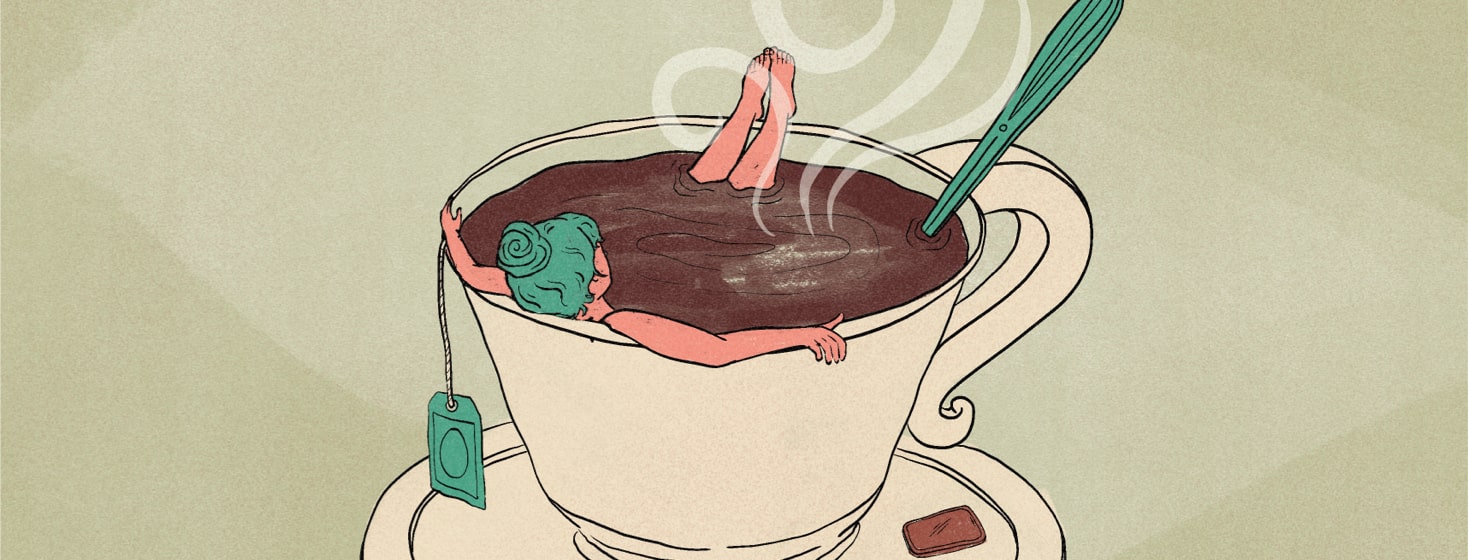5 Things I’m Doing to Improve My Sleep With IBD
Sleep with IBD is a difficult topic for many of us. Research has found about 75% of people with active disease report disturbed sleep, whether that's due to symptoms keeping us awake or just not being able to drift off.1
Yet sleep is also really important for those of us with Crohn's or colitis – poor sleep leads to worse outcomes in disease activity.1 Meaning it's important to try and get as much sleep as you can, and it's a pretty essential component to having a healthy life.
If you're struggling with sleep, there are a few things that you can do to potentially improve your sleep quality and quantity. I wanted to share what I am currently doing to help improve my sleep with IBD.
Featured Forum
View all responsesCombating poor sleep with Crohn's or UC
Sleep tea
I don't drink much caffeine anyway but it's often recommended to cut down on tea or coffee 2 hours before bed. I have been taking it a step further and drinking chamomile tea – which is not only thought to help with sleep and relaxation but is also thought to be soothing to your gut. Other herbal teas thought to help with sleep are valerian (this can interact with some medications so double check) and passion fruit tea.
Lavender spray
Lavender is a natural herb that has been used for centuries as a way to improve sleep. It can be used in various ways, such as through aromatherapy or by drinking it in form of a tea before bedtime. I have two lavender products: a pillow spray which I spray right before I actually go to sleep and an oil diffuser of lavender essential oil. It really does work!
Not using my mobile phone before bed
The blue light that emanates from the screens of our phones and tablets is said to disrupt the natural production of melatonin, which is a hormone that regulates sleep cycles. It is thought that exposure to blue light before bedtime can suppress melatonin production and lead to difficulty sleeping. I am terrible for reading on my phone in bed but this is something I'm trying to do by reading a book or listening to a podcast instead.
Exercise
Yoga is a great way to relax your muscles and mind. It is also a great way to release tension, anxiety, and stress. Yoga and exercise can also help you sleep better. It may not seem like it, but yoga will help you relax your muscles and mind. Yoga will also help you release tension, anxiety, and stress. There are lots of free YouTube tutorials – and there are even some that you'll find that are IBD-specific. Alternatively, more intense exercise can help you feel more tired before bedtime.
Not eating right before bed with IBD
Eating before bed for me is not a good idea because it can cause acid reflux – something that I really struggle with in the middle of the night if I overindulge.
I went through a phase of eating too much food on an evening whilst snacking in front of the TV- the result was being woken up at 3 a.m. with pain and acid reflux, and I couldn't go back to sleep for an hour or so. So although it is tempting, I try not to eat at least an hour before I go to sleep and it seems to have helped.
Do you struggle sleeping with IBD?
I would love to know if you struggle with sleep? And what you've tried for help? Comment below.

Join the conversation